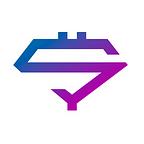SEC v. Telegram, or Fiat v. Blockchain
The famous litigation between the SEC and Telegram is getting at new heights. January 21st, 2020, two companies filed petitions as amicus curiae — third-party participants that assist a court by delivering new information. These two teams are the Blockchain Association (BA) and the Chamber of Digital Commerce (CDC). Superorder figures out how this action changes the landscape and what to expect.
The Essence of Confrontation
In the fall of 2019, the US SEC obtained a restraining order against Telegram-controlled entities because of the supposedly illegal ICO process. Let’s remind that Telegram held its TON ICO and sold Gram (GRM) tokens for more than $1.7 billion. As for now, the order is active and two parties wait for the court’s decision. The SEC insists that GRM are securities while Telegram thinks they are fully legal and regulated utility tokens.
To refresh the key events of this story, check out the chronology:
- July 13, 2019 and earlier: Telegram attracted $1.7 billion from ICO investors and started selling its Gram tokens to initial customers during public rounds.
- October 11, 2019: the SEC filed an emergency action and got a restraining order. The SEC thinks that GRM pass the Howey test and are securities.
- October 16, 2019: Telegram responded to the regulator, asking the court to deny the SEC’s request and insisting that Gram tokens aren’t securities.
- October 19, 2019: the court postponed the hearing on this topic to February 18–19, 2020. It means that the case is in its beginning only.
- October 24, 2019: TON investors refused the proposed refund from Telegram. The token issuance was moved to April 30, 2020.
- January 2, 2020: the SEC filed a new court order to compel Telegram into sharing bank records related to the ICO and funds’ spending.
- January 6, 2020: the court denied the SEC’s request from January 2, 2020. Despite this decision, Telegram still must prove than records comply with laws.
- January 7 and 8, 2020: Telegram CEO Pavel Durov was answering the court’s questions for 18 hours during the official deposition.
- January 10, 2020: the SEC filed another request because it found new evidence of the ICO as a security offering.
- January 13, 2020: due to new evidence, the court obliged Telegram to share its bank records by February 26, 2020.
- January 21, 2020: the Blockchain Association and the Chamber of Digital Records filed amicus curiae briefs the court.
- January 21, 2020: the SEC also submitted a study where it doubts the Telegram’s abilities to develop a blockchain platform and own tokens.
The most important point here relates to third-party appeals that may affect the balance, surprisingly. Two new companies made their moves and took the whole case to a more global level. Now, it’s not only the fight between the SEC and Telegram. It’s more about the general rivalry of centralized and crypto systems.
Help from Amicus Curiae
Blockchain Association
The first party is a team of advocates involved in the blockchain industry. It involves Coinbase, Circle, Etoro, Kraken, Ripple, 0x, and others. The association focuses on three points related to the SEC’s misconceptions and ambiguities:
- The SEC is unclear in its own interpretation of securities.
- The SEC attacks the model designed to comply with its regulation.
- Banning TON and GRM would harm investors, not protect them.
In conclusion, the Blockchain Association even delivers some suggestions to the court. Advocates think that the judgment in favor of the plaintiff would frustrate the legal adoption of blockchain technologies. This also may worsen the attractiveness of the USA as a world technology leader and enable investment outflow.
Chamber of Digital Commerce
The second party filed an amicus curiae brief is the largest worldwide non-commercial trading association focused on digital assets and blockchain. It established notable advocacy teams like the Blockchain Council.
The document submitted written by a counsel Lilya Tessler and submitted by the CDC is more cautious. From the beginning, it notes that the body isn’t trying to decide whether Gram tokens are securities or not. However, the association wants to ensure that the court has a clear vision of digital assets’ regulations and rules. Main points of this brief are as follows:
- It’s important to distinguish digital assets and securities transactions.
- Not all digital assets should be considered securities only because of blockchain.
- Not all transactions are subject to the securities laws as the SEC isn’t unique.
- Investors should be protected but data disclosure serves little purpose.
Hence, the CDC asks the court to consider all opinions and note that there are different regulatory approaches. It’s crucial to have enough clarity regarding digital assets such as tokens or cryptocurrencies, according to the company.
The Destiny of All Blockchain/Crypto Projects
Well, where are we with all these changes? To be honest, not too far from October 11, 2019. Most likely, the initial SEC’s request would be fulfilled because both third-party counselors are interested in a decision in favor of Telegram. Moreover, the arguments postulated in briefs are similar to ones stated by Telegram itself. Thus, the court wouldn’t consider these petitions as game-changing.
Overall, today, we see the industry-grade litigation. It reveals the most important controversies between adepts of centralized economies supported by fiat currencies and crypto/blockchain enthusiasts. The main idea that GRM are utility tokens may not help Telegram. The SEC accepts the fact that different tokens also can be classified as securities. And that’s why we can expect a negative decision.
What’s more important, the verdict will set a precedent. Either the USA government will allow TON- and Libra-like projects or it will block them through the SEC. The next court hearing is scheduled for February 18, 2020. How it will be? We will see.
